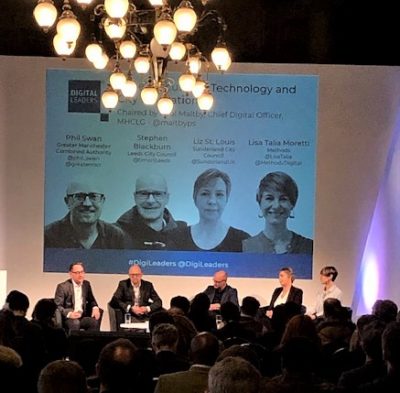 I attended Digital Leaders’ Public Sector Innovation Conference this week and it was fascinating to hear how the public sector is embracing digital innovation – in particular, AI and machine learning – to continually improve the services they provide for citizens. With a focus on citizen experience and a goal of delivering the right services to the right people, it’s great to see the public sector exploring how they can use data and technology to deliver.
I attended Digital Leaders’ Public Sector Innovation Conference this week and it was fascinating to hear how the public sector is embracing digital innovation – in particular, AI and machine learning – to continually improve the services they provide for citizens. With a focus on citizen experience and a goal of delivering the right services to the right people, it’s great to see the public sector exploring how they can use data and technology to deliver.
What was even more encouraging however, was the acknowledgement that the success of any digital innovation projects hinges on two key pillars: data accuracy and data sharing.
Digital Innovation Pillar 1: Data Accuracy
For the public sector, having accurate data is important overall to ensure a range of operations and services are provided effectively. However, when digital projects are analysing data or feeding it into AI or machine learning technology, the accuracy of the data becomes fundamental. It won’t matter how sophisticated the technology, how detailed the analysis, or how inventively the results are used; if the data being used is incomplete and filled with errors and duplications, the outputs can’t be relied upon. There have been some high-profile examples of the pitfalls of using bad data to power AI transformational projects. The fallout can be costly and damaging. The acknowledgement at the event that addressing data quality as a critical first step to digital transformational and AI projects is encouraging for the future successes in our public sector and of course, the benefits to citizens being realised.
Learn more about getting your data accurate and ready for digital transformation – get it touch.
Digital Innovation Pillar 2: Data Sharing
The importance of data sharing within the public sector is something I’ve been talking about for a while; in fact, I believe it is the key to unlocking smart cities. There are numerous barriers in place that often prevent data sharing which can block transformational projects before they’ve begun. Phil Swan, CIO at the Greater Manchester Combined Authority, spoke at the event about some of the challenges they’re facing in meshing the information across authorities and their partners. Speaking about the barriers is positive in that it brings them to light and opens the discussion about how they can be overcome.
It was also great to hear from Theo Blackwell, MBE about some of the projects that are possible because organisations are willing to share their data with one another, such as CityMapper, which uses Transport for London’s data. Whilst there will still be concerns over data sharing due to the sensitive nature of some citizen data, Theo discussed how they achieved a better than expected engagement rate from the London Boroughs in some of the London Office of Technology and Innovation projects. Sharing data can be encouraged by ensuring the data is treated ethically, which citizen privacy a key concern. The updates to the London Datastore are a recent example of how they’ve been able to make improvements due to data sharing.
Overall, the event highlighted how the public sector is embracing digital transformation and innovation in order to better serve their citizens and whilst there may still be steps to overcome, it’s certainly moving in the right direction. We’ve been involved in some award winning and innovative projects with local authorities over the last few years ourselves that have delivered real benefit to citizens: such as London Borough Hackney’s Citizen Index that won a Socitm award for innovation; York Council’s Single Citizen View that was shortlisted for a Guardian Public Service Award in the ‘Digital and Technology’ category; and Brighton and Hove’s Customer Index.
Learn more about how we can work with you to enable your digital transformation – get it touch.